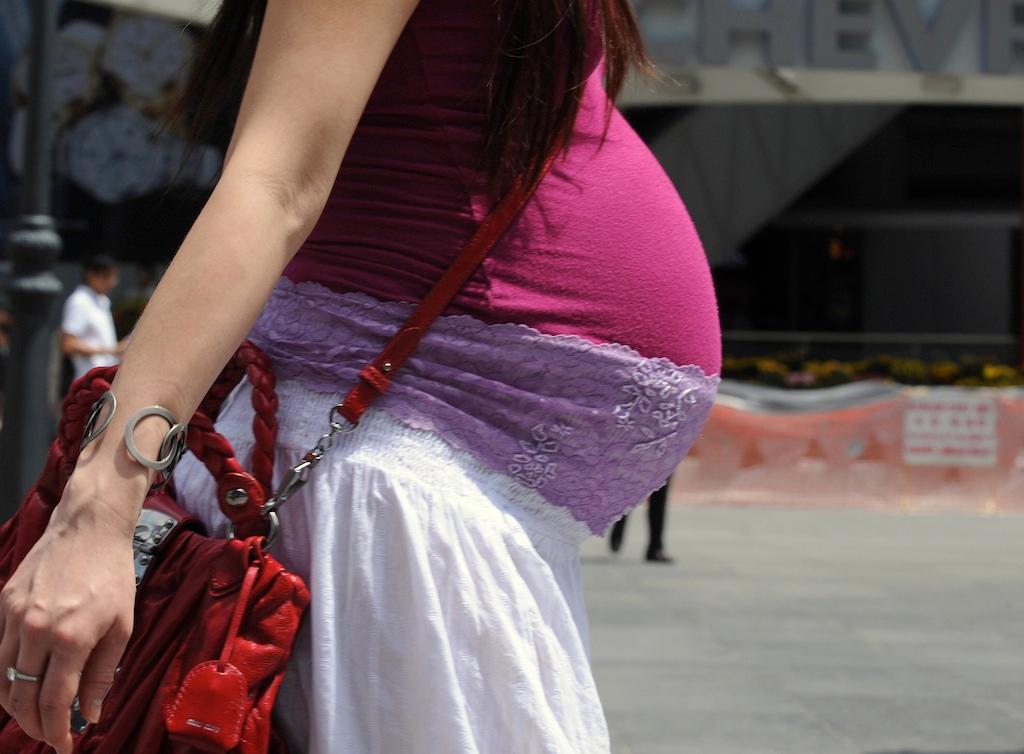Pesticide exposure linked to low birth weight and shorter pregnancies, new study says
In this photo dated January 19, 2009, a pregnant woman walks down the street of the financial district in Singapore.
Pregnant women with high concentrations of a common pesticide in their body were more likely to have shorter pregnancies, a new study in Environmental Health Perspectives has found. Pesticide exposure was also linked to lower birth weights. The Huffington Post noted that the risks are "comparable to those long associated with tobacco smoking," except that a mother has much less control over pesticide exposure.
More from GlobalPost: Promises, pitfalls await investors in Burma’s frontier
The study included more than 300 pregnant women from the Cincinnati area who twice had their urine tested during pregnancy for organophosphate metabolites, HealthDay reported. Organophosphates were originally developed as nerve poisons during World War II but are now used on food to kill insects. They are the most commonly used insecticides, HealthDay said.
"For an individual child, a … 150-gram reduction in birth weight is of little consequence," study author Bruce Lanphear told the Montreal Gazette. "But this is just one of many risk factors that a pregnant woman might encounter. If a woman has four or five risk factors, the impact can be substantial."
Indeed, a recent paper from Harvard Medical School says that exposure to different types of organophosphate pesticides has also been linked to IQ loss in children. Researchers believe that fetuses and children are more sensitive to toxic chemicals than adults.
It's difficult for women to avoid exposure to pesticides, as the study couldn't pinpoint the main source of pesticide exposure in the pregnant women. And previous research has shown that more than 90 percent of pregnant women and children have measurable levels of organophosphate pesticides in their bodies, HealthDay reported.
Lanphear said that government officials need to change the way that pesticides are regulated. "We're really failing to protect kids," Lanphear told the Huffington Post.
The story you just read is accessible and free to all because thousands of listeners and readers contribute to our nonprofit newsroom. We go deep to bring you the human-centered international reporting that you know you can trust. To do this work and to do it well, we rely on the support of our listeners. If you appreciated our coverage this year, if there was a story that made you pause or a song that moved you, would you consider making a gift to sustain our work through 2024 and beyond?
